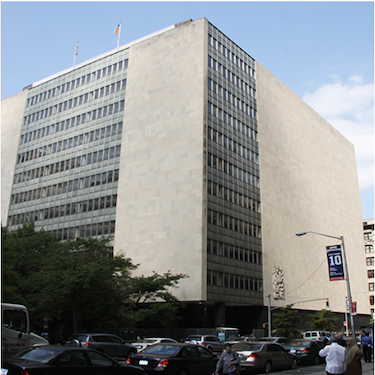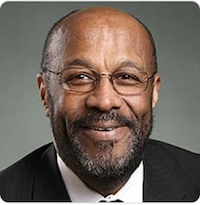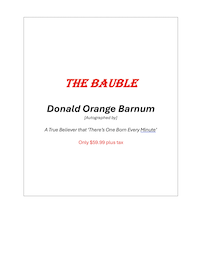
Manhattan Criminal Courthouse, 100 Centre Street, New York City
Welcome to 100 Centre Street in Manhattan.
Donald Trump and I have one thing in common. We have both appeared before a New York City judge in the Manhattan Criminal Justice Center at 100 Center Street in New York City.
I was there in the spring of 1971 charged with trespassing. I was part of an effort involving preachers and seminary students led by Operation Breadbasket to force the Atlantic and Pacific grocery chain (A&P) to hire more African Americans as store managers, and to increase their store presence in inner city communities. When they tried to ignore our peaceful picket lines outside their executive offices on 42nd Street and 6th Avenue in midtown Manhattan, we launched a sit-in in the lobby of that building at 4:55 PM on a Friday evening.
At precisely 5:01 we were deemed to be trespassing on private property. When we refused to leave after two or three hours, we were arrested by the New York City Police Department, loaded into police vans, driven to 100 Centre Street where we were placed in jail cells in groups of four or five. I was placed in the same cell as Ralph David Abernathy who had succeeded Martin Luther King, Jr. as President of the Southern Christian Leadership Conference, which was the parent body for Operation Breadbasket. We spent the night in jail, and were released when A&P dropped the charges. Within days they conceded to our demands.
I remain proud of the time I spent at 100 Centre Street. We were standing up for the very best in America which is the right to protest for what you believe to be right.
I thought about that night last week when Donald Trump stood before a New York City judge and was pronounced guilty of 34 felony charges dating back to the 2016 presidential election. Those charges involved efforts made by Trump and his "fixers" and "enablers" to pay hush money to purchase the silence of adult film star Stormy Daniels, with whom Trump had a sexual encounter while Trump's third wife was recovering from the birth of their son, Barron just three months earlier.
Trump has since attacked the judge, the jury, the American criminal justice system, and Alvin Bragg, the Manhattan District Attorney who brought those 34 felony charges. Donald Trump views himself as above the law. He used threats, intimidation, and surrogates dressed up like stage show puppets to keep from having to face the consequences of his well documented efforts to engage in voter fraud by hiding from the public his tryst with a porn star. After boasting about grabbing women at their private places, he must have been concerned that the revelation about Stormy Daniels might hurt him at the ballot box for the fast approaching 2016 election.
The crime was not a tawdry one night stand with a porn star. The crime was not paying hush money. The crime was election interference: Trump sought to keep the voting public from knowing about this aspect of his character.
In 1971, we saw ourselves as subject to the law that we were willing to break and to the consequences we were willing to face in order to call attention to a higher principle: protesting social and economic injustice rooted in hundreds of years of racial discrimination. In 2024, Trump saw himself as being victimized by the criminal justice system that he clearly believes should not apply to him. What he has just found out, and what his lackeys in Congress need to understand, is that in this country no one is above the law, including a former President of the United States. Welcome to 100 Centre Street in New York City.
• • •• • •
R E C E N T:
Lest we forget
My Black History story
A call for pastoral equity in the Black Church
Trump creeping closer to white supremacy advocacy
• • •• • •
The Rev. Dr. Marvin A. McMickle, pastor emeritus of Antioch Baptist Church in Cleveland, Ohio, is interim senior minister, First Baptist Church of Greater Cleveland. He served as president of Colgate Rochester Crozer Divinity School, Rochester, New York, from 2011 to 2019.














